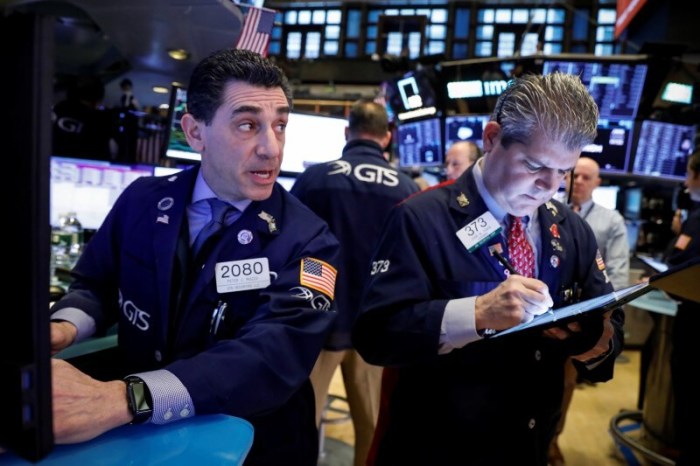By Kate Duguid and Megan Davies
NEW YORK (Reuters) – High-yield U.S. bonds suffered more pain on Thursday, with major junk bond exchange-traded funds falling to the lowest level since February 2016 and an index for credit insurance protecting against exposure to junk bonds widening sharply to a nine-year high.
The Markit high-yield credit-default swap index The price of the SPDR Bloomberg Barclays High Yield Bond ETF fell to the lowest since February 2016 Investor worries about corporate credit are heating up as the coronavirus spreads, with the prices of bond funds taking a hit, companies starting to draw on credit lines and some market watchers warning of the possibility that investors pull out of products. “If you are playing in corporates expect to see widening bid offer spreads,” said Andrew Brenner, head of international fixed income at NatAlliance Securities. “Liquidity continues to be a problem and it is getting worse.” Closed-end high-yield bond funds also fell on Thursday, notching far larger moves than the broader high-yield market. Closed-end funds have leverage associated with them and therefore saw larger outflows from investors wary of risk. “The reason (closed-end funds) go down faster is because they’re levered,” said Brenner.
The DoubleLine Income Solutions fund (Reporting by Kate Duguid, writing by Megan Davies; Editing by Chizu Nomiyama and Nick Zieminski)






















